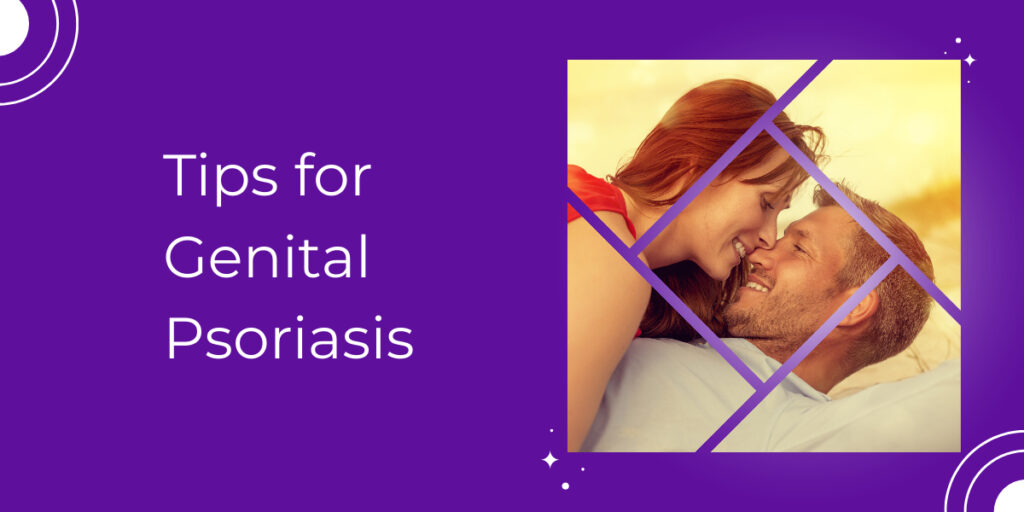Tips for Genital Psoriasis – Live a Healthier and Happier Life
Genital psoriasis is an uncomfortable and often embarrassing condition that can have a significant impact on a person's quality of life. It is important to be aware of the symptoms and treatments available so that sufferers can manage their condition and live a more comfortable life. This blog post will provide readers with tips on how to manage genital psoriasis, including lifestyle changes, treatments, and other helpful advice. With the right information, readers can take control of their condition and find relief from the discomfort and embarrassment of genital psoriasis.
Genital psoriasis is a common yet often misunderstood skin condition that can cause significant discomfort and distress. It is important to understand the symptoms and treatments available so that you can take steps to manage the condition and improve your quality of life.
If you’re dealing with genital psoriasis, here are some health tips for genital psoriasis that may help you manage the condition and improve your overall well-being:
- Maintain good personal hygiene: Keep the affected area clean, but avoid using harsh soaps or scrubbing vigorously, as this can aggravate the skin. Opt for mild, fragrance-free cleansers or emollient washes instead.
- Moisturize regularly: Apply a moisturizer to the genital area after bathing or showering to help hydrate the skin and reduce dryness. Look for products that are specifically formulated for sensitive or psoriasis-prone skin.
- Avoid irritants: Steer clear of potential irritants such as scented products, dyes, and harsh chemicals, as they can trigger or worsen genital psoriasis symptoms. Choose gentle, hypoallergenic products for personal care and laundry.
- Wear loose-fitting clothing: Opt for breathable, loose-fitting underwear and clothing made from soft, natural fabrics like cotton. This can minimize friction and irritation in the genital area.
- Manage stress: Stress can potentially exacerbate psoriasis symptoms. Explore stress management techniques like meditation, deep breathing exercises, yoga, or engaging in hobbies to help reduce stress levels.
- Avoid triggers: Identify and try to avoid triggers that may worsen your genital psoriasis symptoms. These triggers can vary from person to person but may include certain foods, alcohol, smoking, or specific medications.
- Practice safe sex: If you have active genital psoriasis, it’s important to communicate with your partner about your condition and take necessary precautions to avoid discomfort or potential skin irritation during sexual activity. Using lubricants may also be helpful.
- Seek emotional support: Living with a chronic condition like genital psoriasis can be challenging emotionally. Reach out to support groups, online communities, or counseling services to connect with others who understand your experience and share coping strategies.
- Follow your treatment plan: Consistently follow the treatment plan recommended by your dermatologist or healthcare professional. This may involve using prescribed medications, following a skincare routine, or undergoing phototherapy sessions. Regularly communicate with your doctor about any changes in symptoms or concerns.
Remember, these tips are general in nature, and it’s important to consult with your healthcare provider for personalized advice tailored to your specific situation. They can provide guidance based on your medical history, severity of symptoms, and individual needs.
Can I get psoriasis if I have sex with someone who has psoriasis?
You will not get psoriasis because psoriasis is not a sexually transmitted disease or contagious disease.
How to have a better sex life when you have genital psoriasis?
Genital psoriasis can have an impact on a person’s sex life due to physical discomfort, emotional stress, and concerns about how the condition may affect intimacy. However, it’s important to remember that having genital psoriasis doesn’t mean you can’t have a fulfilling and enjoyable sex life. Here are some considerations and tips:
- Communication: Openly communicate with your partner about your condition, including its symptoms, triggers, and any limitations or discomfort you may experience. Honest and supportive communication can help foster understanding and find ways to adapt sexual activities that are comfortable for both of you.
- Timing: Choose the best time for sexual activity when your symptoms are more manageable or less flared up. This can vary from person to person, so pay attention to your body and engage in sexual activities during periods of reduced symptoms.
- Lubrication: Consider using water-based lubricants to reduce friction and discomfort during sexual activity. This can be particularly helpful if you experience dryness or cracking in the genital area due to psoriasis.
- Gentle touch: Opt for a gentle touch and avoid excessive friction or pressure on the affected areas. Experiment with different positions and activities that minimize irritation and maximize pleasure.
- Protection: If you have active psoriasis lesions, using a barrier method like condoms may help protect your skin and prevent potential irritation or infection during sexual intercourse.
- Body confidence: It’s natural to feel self-conscious about the appearance of psoriasis lesions. Remember that your partner’s understanding and support can make a significant difference. Building self-acceptance and body confidence can help enhance your overall sexual experience.
- Seek professional advice: If you’re experiencing significant challenges or concerns regarding your sex life due to genital psoriasis, consider seeking guidance from a healthcare professional or a therapist specializing in sexual health. They can provide specific strategies and support tailored to your situation.
Remember, everyone’s experience with genital psoriasis is unique, and it may take some trial and error to find what works best for you. With patience, communication, and a focus on pleasure and intimacy, it is possible to maintain a fulfilling and satisfying sex life while managing genital psoriasis.
References:
- https://www.aad.org/public/diseases/psoriasis/treatment/genitals/genital-treat
- https://www.webmd.com/skin-problems-and-treatments/psoriasis/genital-psoriasis-guide
- https://www.everydayhealth.com/psoriasis/living-with/what-to-do-about-genital-psoriasis/
- https://www.webmd.com/skin-problems-and-treatments/psoriasis/features/genital-psoriasis-intimacy
- https://www.webmd.com/skin-problems-and-treatments/psoriasis/psoriasis-sex-tips
- https://www.medicalnewstoday.com/articles/psoriasis-and-intimacy#taking-care-of-skin
